
Kathiann Kowalski loves talking with scientists and engineers about their work and why it matters. And she loves getting into the field — whether that’s at a lab, in a research forest, at a drilling site or on a research boat. She has written more than 700 articles, plus 25 books for young people. “There’s always something new happening — and something new to learn,” she says.
Kathi graduated from Hofstra University in New York and got her law degree from Harvard Law School in Massachusetts. She previously practiced environmental law with a large firm. Kathi enjoys hiking, sewing, reading and travel.

All Stories by Kathiann Kowalski
-
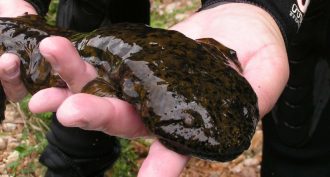 Animals
AnimalsHellbenders need help!
Hellbenders already face threats such as habitat loss, pollution and disease. But climate change could make matters worse. And the problems facing hellbenders could spell trouble for more than just these giant amphibians.
-
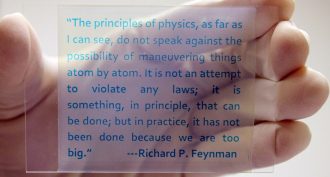 Tech
TechRewritable paper: Prints with light, not ink
Rewritable paper could save money, preserve forests and cut down on waste — and all without using any ink.
-
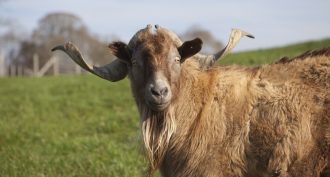 Agriculture
AgricultureLivestock: A need to save rare breeds
New studies and ongoing work highlight why society should save rare livestock breeds — and the part that technology can play.
-
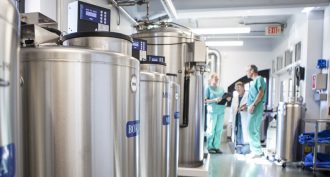 Agriculture
AgricultureExplainer: What is a gene bank?
Most banks store money. But some very special ones store deposits that may prove even more valuable: tissues that could prevent the extinction of breeds and species.
-
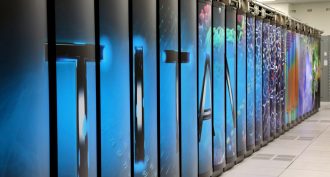 Computing
ComputingExplainer: What is a computer model?
Computer models use data, math and computer instructions to predict events in the real world.
-
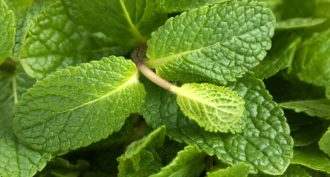 Brain
BrainScents may affect how appealing tobacco is
Menthol’s effects on the brain may make tobacco more addicting. In contrast, foul odors might help smokers quit. Two new studies show how.
-
 Computing
ComputingModels: How computers make predictions
They use numbers to model real-world activities. And new insights in math are streamlining models’ design.
-
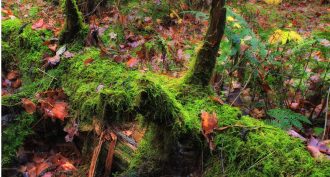 Microbes
MicrobesRecycling the dead
When things die, nature breaks them down through a process we know as rot. Without it, none of us would be here. Now, scientists are trying to better understand it so that they can use rot — preserving its role in feeding all living things.
-
 Health & Medicine
Health & MedicineWatch out: Cell phones can be addictive
Smartphones and Facebook are convenient. New research shows that for some people they also can become dangerously addictive.
-
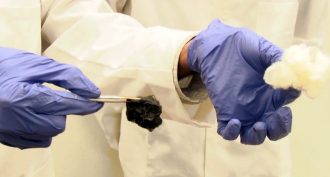 Tech
TechSoaking up oil spills — with cotton
Natural, low-grade cotton could help clean up oil spills better than synthetic materials, a new study finds. And unlike synthetics, cotton breaks down naturally.
-
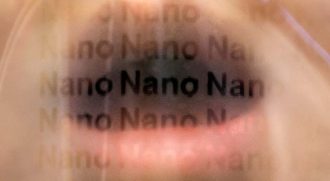 Tech
TechInvisible plastic ‘ink’ foils counterfeiters
Hidden images make a new label virtually counterfeit-proof, thanks to a combination of chemistry and nanotechnology.
-
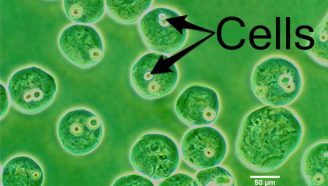 Tech
TechFashioning inks to ‘print’ tissues
3-D printing may one day create life-saving tissues and organs for transplants. But first researchers are learning how to tailor cell-filled “inks” for use in inkjet printers.